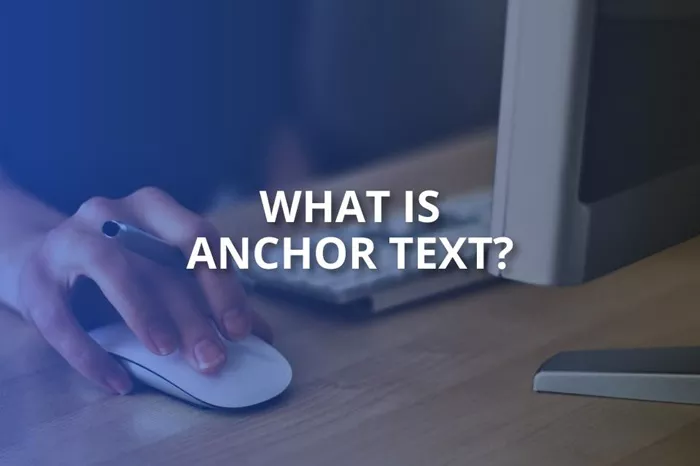Anchor text plays a pivotal role in search engine optimization (SEO), shaping how websites connect, communicate, and rank. What Is Anchor Text SEO? Whether you’re a digital marketer, a content creator, or an SEO enthusiast, understanding anchor text is critical for achieving online visibility and success.
What Is Anchor Text?
Anchor text is the clickable text in a hyperlink that directs users from one webpage to another. Typically displayed in a different color or underlined, it provides a clear visual cue that users can click to navigate. For example: Learn more about SEO best practices. Here, “SEO best practices” is the anchor text.
From an SEO perspective, anchor text serves two primary purposes:
User Experience: Helps users understand the link’s context and decide whether to click.
Search Engine Understanding: Provides search engines with information about the linked content, influencing ranking and relevance.
Types of Anchor Text
Anchor text comes in various forms, each serving distinct purposes in SEO strategies:
Exact Match Anchor Text
This includes the exact keyword or phrase you’re targeting.
Example: If your target keyword is “digital marketing tips,” the anchor text would be digital marketing tips.
Partial Match Anchor Text
Contains a variation or partial inclusion of the target keyword.
Example: Explore our tips for effective digital marketing.
Branded Anchor Text
Uses the name of a brand or organization.
Example: Visit Nike for the latest shoes.
Naked URL Anchor Text
Displays the plain URL of the link.
Example: https://www.example.com.
Generic Anchor Text
Uses generic words or phrases unrelated to keywords.
Example: Click here, Learn more, Read this.
Image Anchor Text
When an image is hyperlinked, its “alt text” acts as the anchor text.
Why Is Anchor Text Important for SEO?
Anchor text impacts how users and search engines perceive a website. Here’s why it matters:
Improved Relevance and Context: Search engines analyze anchor text to understand the topic of the linked content. Relevant anchor text signals strong connections between pages, enhancing SEO.
Enhanced User Experience: Descriptive anchor text helps users navigate your site effectively, reducing bounce rates and improving session durations.
Influence on Rankings: When used strategically, anchor text contributes to keyword optimization and ranking for targeted terms. However, over-optimization can lead to penalties.
Backlink Strategy: Anchor text used in backlinks (links from external sites to yours) can significantly influence your domain authority and search rankings.
Best Practices for Anchor Text SEO
To maximize the benefits of anchor text, adhere to these best practices:
Use Descriptive and Relevant Text: Anchor text should clearly describe the content of the linked page. Avoid misleading or vague phrases.
Avoid Over-Optimization: Using exact match anchor text excessively can trigger penalties from search engines. Diversify your anchor text with branded, generic, and partial match types.
Maintain Natural Placement: Anchor text should blend seamlessly into the surrounding content, enhancing readability and relevance.
Prioritize User Intent: Think from the user’s perspective. Ensure the link adds value and aligns with their needs.
Leverage Internal Linking: Use anchor text to interconnect pages on your site. This helps distribute link equity and keeps users engaged longer.
Optimize Alt Text for Image Links: When linking images, include descriptive alt text that provides context for both users and search engines.
Common Mistakes to Avoid
While anchor text is a powerful tool, misuse can harm your SEO efforts. Steer clear of these common mistakes:
Keyword Stuffing: Overloading anchor text with keywords can lead to penalties for unnatural linking.
Irrelevant Anchor Text: Linking with anchor text unrelated to the target page creates confusion and lowers SEO value.
Using Too Many Generic Anchors: Over-reliance on generic phrases like “Click here” dilutes relevance and reduces SEO impact.
Ignoring Mobile Usability: Ensure anchor text is easily clickable on smaller screens to maintain a seamless mobile experience.
Neglecting Broken Links: Monitor and fix broken links to avoid harming user experience and SEO performance.
How Anchor Text Fits Into Link-Building Strategies
Anchor text is integral to link-building, a key component of SEO. Here’s how it works:
Backlink Anchor Text: The text used in backlinks signals the relevance and authority of your site to search engines. High-quality backlinks with appropriate anchor text enhance credibility.
Internal Linking: Internal links with descriptive anchor text improve site structure and help search engines crawl and index your pages effectively.
Diversification: A diverse anchor text profile indicates natural link-building. Combine exact match, branded, partial match, and generic anchors for a balanced approach.
Relevance and Quality: Focus on acquiring backlinks from reputable sites with relevant anchor text. Quality outweighs quantity in link-building success.
Anchor Text in Modern SEO Trends
The role of anchor text continues to evolve with advancements in search engine algorithms. Key trends include:
Semantic Search: Search engines increasingly prioritize context and intent over exact keyword matching. This emphasizes the importance of meaningful anchor text.
Voice Search Integration: As voice search grows, anchor text must align with natural language queries to remain effective.
AI and NLP Advancements: Artificial intelligence and natural language processing enhance search engines’ understanding of anchor text context, encouraging more organic use.
Conclusion
Anchor text is a cornerstone of effective SEO, influencing user experience, link-building, and search engine rankings. By implementing best practices and avoiding common pitfalls, you can harness the power of anchor text to drive traffic, enhance credibility, and achieve your digital marketing goals. Remember, relevance, diversity, and user-centricity are key to success.
Related Topics

